July 15, 2008
|
A medical team traveled to Honduras June 20-28. It was the fifth UB medical team in five years. Global Ministries has worked with Francisco and Maira Raudales to set up clinics in a different area each time. This year we went to the Copan region, where Honduras Conference has started a number of churches in recent years. It was my first visit to that area.
This year’s trip was phenomenal. Everybody gelled. We conducted clinics in five locations, and saw a total of 1945 patients.
The team leaders were Robert and Fonda Cassidy (right), who are from the Mount Olivet UB church in Mount Solon, Va. Robert and Fonda have been on a lot of trips, both with UBs and other organizations. Fonda is a trauma care nurse, and for a while she worked as a first-responder on helicopters and ambulances. Now she works in obstetrics and gynecology.
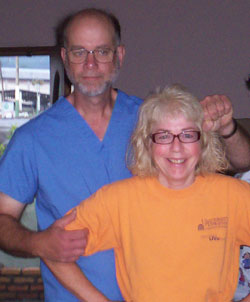 Robert and Fonda oversaw the setup and flow of the clinic, made sure the team members remained healthy and hydrated, did advance work with room preparation for our lodging, arranged for meals, and helped with transportation.
Robert and Fonda oversaw the setup and flow of the clinic, made sure the team members remained healthy and hydrated, did advance work with room preparation for our lodging, arranged for meals, and helped with transportation.
We usually do team-building events prior to trips. Because this year’s group was spread out geographically, we held two team-building gatherings–one for team members in Ohio and Indiana, and one for those in Pennsylvania, Virginia, and West Virginia. They came together on a Saturday to go over what to expect, have Bible study and prayer together, and do basic preparations.
We left on Friday, arrived in Honduras that afternoon, and drove to Santa Rosa, where we did a clinic on Saturday. We took Sunday off, and had a chance to visit the Mayan ruins at Copan. Then, Monday through Thursday, we held clinics in four different locations. We arose early, traveled to the site, and were ready to go by 9 a.m.
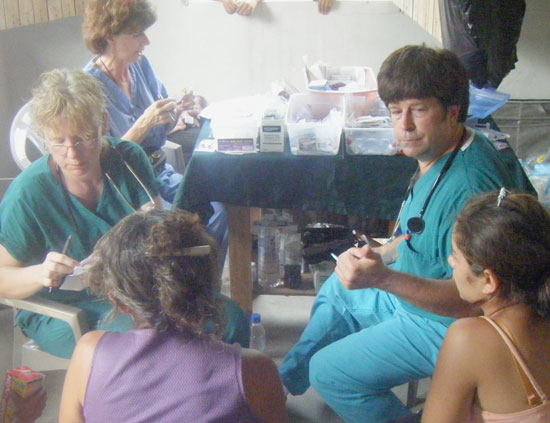 Typically our clinics started at 9 a.m., and we worked until at least 6 pm., with just 15 minutes for lunch. After each clinic the team met for a time of debriefing and to have devotions together.
Typically our clinics started at 9 a.m., and we worked until at least 6 pm., with just 15 minutes for lunch. After each clinic the team met for a time of debriefing and to have devotions together.
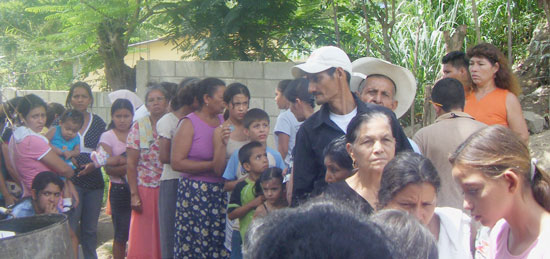
At 9 a.m., people would already be lined up. The local pastor would normally give each person a number as they arrive, and we would go right down the line. It was quite organized.
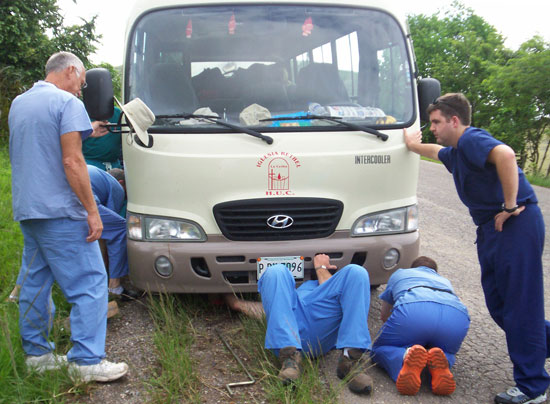
Bus troubles.
We set up various stations people would go through. I worked with Maira Raudales in registering. She would ask their name and age, and about their physical problem. It ranged anywhere from headaches, to much more serious ailments. We took their blood pressure, and then sent them to one of the nurses or doctors who would give them a physical and ask questions via a translator. We prescribed medications which we dispensed either at the stations or at the pharmacy we set up at each clinic.
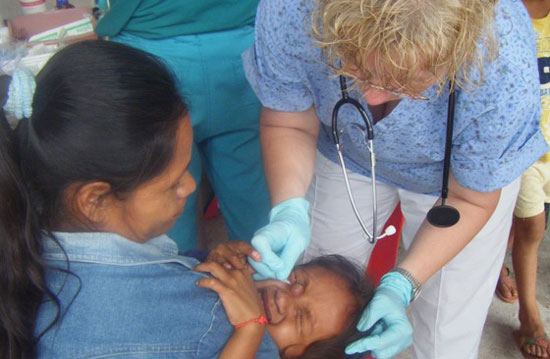
This is the first year we didn’t run out of medication. For just $35, MAP International provides a box of medications designed specifically for the locale we would be going into. The box includes antibiotics for parasites and other medications. Every nurse or doctor on the team acquired one of these boxes. Then we took additional vitamins, plus basic hygiene supplies such as soap, toothpaste, and toothbrushes, which we handed out to people.
After receiving medical attention, people met with the pastor of the local church, who talked to them and prayed with them. So we ministered not only to their physical needs, but their spiritual needs as well.

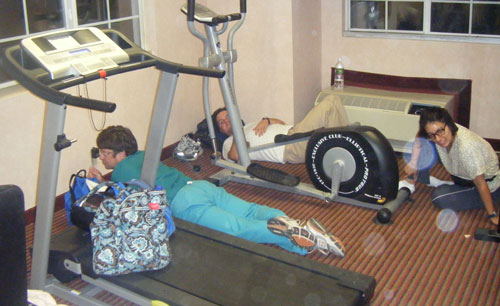
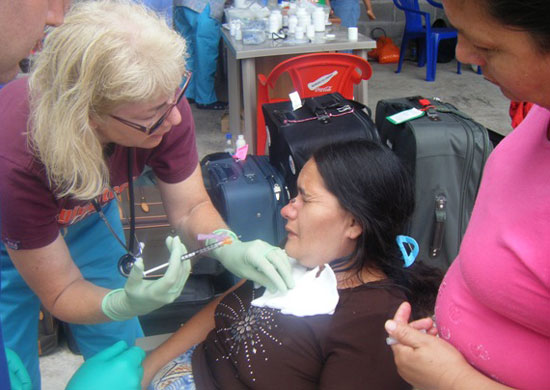
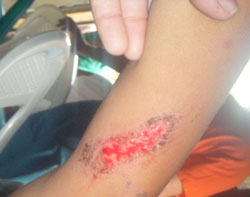
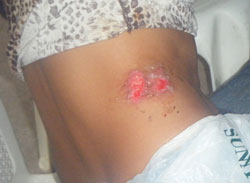
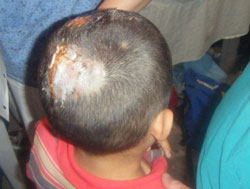 Those all had to be opened and drained. The whole top of his head was covered with those.
Those all had to be opened and drained. The whole top of his head was covered with those. Robert and Fonda oversaw the setup and flow of the clinic, made sure the team members remained healthy and hydrated, did advance work with room preparation for our lodging, arranged for meals, and helped with transportation.
Robert and Fonda oversaw the setup and flow of the clinic, made sure the team members remained healthy and hydrated, did advance work with room preparation for our lodging, arranged for meals, and helped with transportation. Typically our clinics started at 9 a.m., and we worked until at least 6 pm., with just 15 minutes for lunch. After each clinic the team met for a time of debriefing and to have devotions together.
Typically our clinics started at 9 a.m., and we worked until at least 6 pm., with just 15 minutes for lunch. After each clinic the team met for a time of debriefing and to have devotions together.

